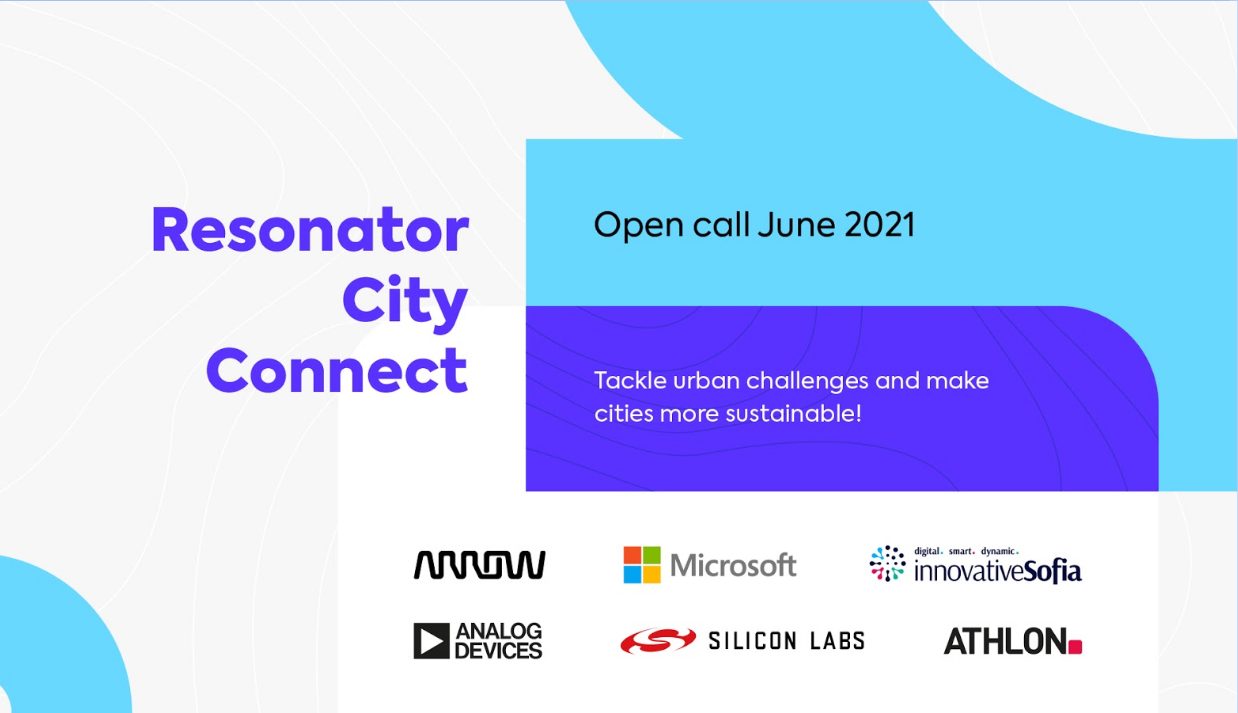(UPDATED – new deadline) Resonator City Connect – call for startups adressing urban challenges

If you live in a big city, you know that each major city has its own problems and challenges. Some are unique, but most of them are quite common. This provides startup companies with opportunities to address these challenges with products and services and offer them to local authorities. Air pollution and urban mobility are just two of the topics that form the iceberg of urban challenges across the world.
In order to address this problematic area, the guys at Resonator co-innovation hub are organizing their first call for startups – Resonator City Connect. The thematic call is looking for startups that can:
- pitch us solutions that enhance city performance and citizen wellbeing by being cleaner, smarter, safer;
- demo projects that can be tested in the context of Sofia and have the potential to be deployed internationally;
- propose solutions for one or more of the current priority areas;
- have already validated their project and there is a need for support to deliver the solution.
Partner in this endeavor is Innovative Sofia – The Digitalisation, Innovation, and Economic Development department of Sofia Municipality. All participating startups will be welcome to propose their innovative ideas for the good of the Bulgarian capital and the improvement of quality of life there.
The priority areas of the call are a lot and one solution can address more than one. Here are all the challenges that can be tackled:
- Population – Currently data on the exact population of Sofia is missing, the methods to update data are out of date and not accurate or frequent enough;
- Empty homes – According to unofficial data, the number of vacant homes or homes without permanent inhabitants in Sofia represents around 25% of the total housing capacity. Yet the construction of new homes continues at a fairly high pace. On the other hand, the number of newly arriving residents in the capital is decreasing and the overall population of the city is not changing;
- Condition of the housing stock – By law, all buildings should have technical passports and yet, currently this is not the case. Information on the building design, condition, energy efficiency, use of resources (water, electricity, heating, internet, etc.) is needed;
- Diseases – There is a lack of information about the location of people who are most seriously ill, types of their diseases and areas with the highest death rate;
- Characterise economic activity – The economy of a given city is currently measured via the economic indicators of the companies registered there. However, the main activities of a given company are often not performed within the territory of the city;
- Culture access – There is a lack of insight on where the audience for galleries, theatres, cinemas and other art events or institutions comes from;
- Characterisation of underground infrastructure – There is a lack of data on the exact locations of plumbing, sewage, heating ducts, all kinds of cables, gas pipes and other underground infrastructures;
- Water leaks – Currently, around 29% of the water that comes from the water supply system is wasted due to leaks in the plumbing system;
- Unregulated discharges – The main water polluter of the rivers in Sofia is unregulated water discharges of domestic wastewaters or their infiltration in the earth layers. This is caused by passing the domestic sewer pipes to the nearest ravine or directly into shafts that pass the dirty water into the soil;
- Urban mobility – Currently we have a very rough idea about the flows of movement of people. Getting to and back from work forms the main part of urban mobility.
- Knowledge of the location of these flows and their form is important for planning both the capacity of transport infrastructures and their operation;
- School run – Some of the children in kindergarten (unknown size) arrive by car, which probably affects a substantial amount (unknown size) of the morning traffic;
- Delivery movements – There is a lack of data on delivery movements in the city. Larger shops are typically stocked by their own warehouse or logistics center. This makes it easier to access information on routes and schedules. The movements of courier companies, the stocking of smaller supermarkets and deliveries to other commercial establishments, including SME businesses, are less easily visible.
- Characterisation of the green system – Currently, there is only partial information about trees and green areas, as well as their condition;
- Waste management habits – There is a lack of detailed information on waste production and management habits. As a result, the effectiveness, efficiency and costs of waste collection and management are unsatisfactory;
- Who is burning, what and when? – The residential heating with wood / coal / briquettes is the main air pollutant in Sofia during the winter months.
- Soil quality – There is a lack of quantitative research on the soils in the city and their pollution level;
- Microclimate Characterisation – General climate data for Sofia is available. However, there is no differential data on the variances between city areas in temperatures, humidity, wind and other climatic characteristics. These variances have effects on the quality of life and also on the risk of extreme weather situations;
- Illumination – The illumination of the city in the evening influences the choice of walking routes. Light pollution not only has detrimental health effects on humans – like causing sleep disorders, depression, cardiovascular diseases, diabetes and cancer – but has also a serious impact on flora and fauna. Nearly a fifth of total global electricity consumption is for public lighting;
- Digital Transformation, Recovery and Resilience – These three processes are facilitating economic and social recovery from the crisis caused by the COVID-19 pandemic and are among the key objectives on an EU-, national and municipal level.
If your startup company has a solution to one of these challenges, feel free to fill out the application form (deadline is July 15 2021, 23:59h CET).




























